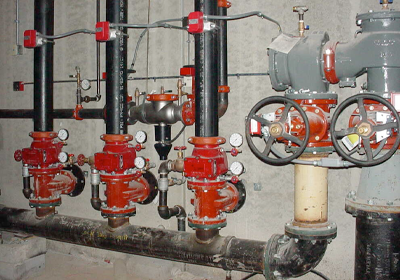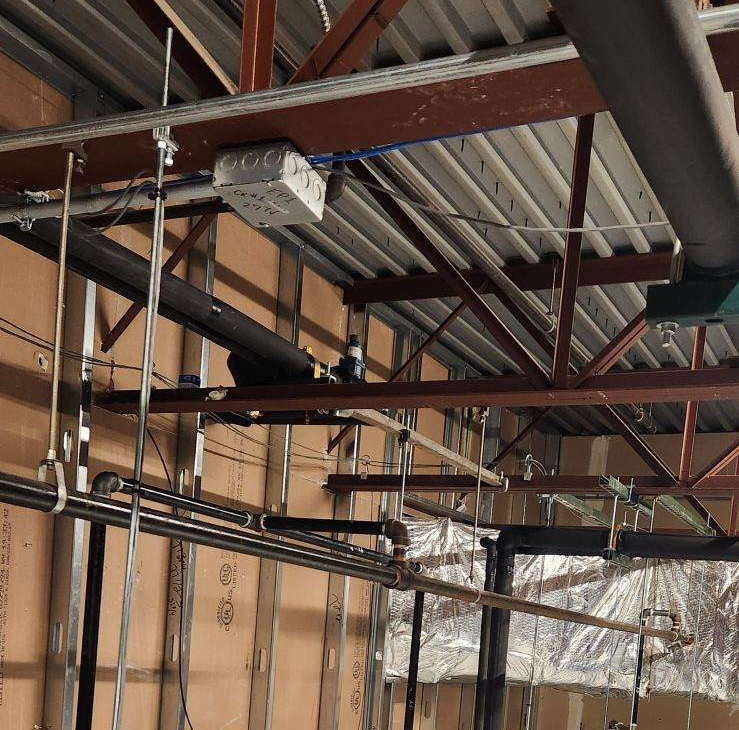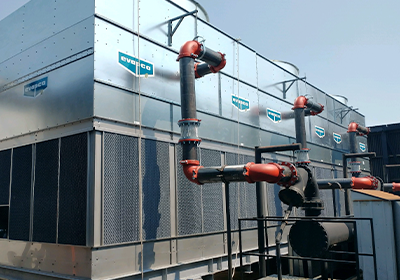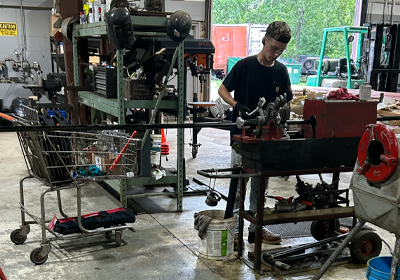Blog
What Should You Look for in a New Commercial HVAC Installation?
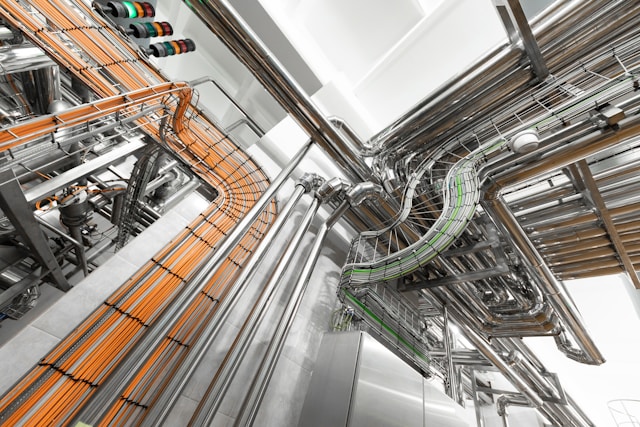
Choosing a new HVAC system for your commercial building is a significant investment, one that affects the comfort, energy efficiency, and operational costs of your facility. With various options available, it’s essential to understand what to prioritize to ensure that your new HVAC installation meets the needs of your business and provides lasting value.
In this article, we’ll explore the key factors to consider when selecting a new commercial HVAC system, from energy efficiency and system type to installation expertise. Making informed choices will help you maximize your investment and create a comfortable environment for your employees and customers.
1. Energy Efficiency
Energy efficiency is one of the most critical factors to consider in a new commercial HVAC installation. An energy-efficient system can significantly reduce utility costs, making it a smart investment for the long term. Look for systems with high Seasonal Energy Efficiency Ratio (SEER) and Annual Fuel Utilization Efficiency (AFUE) ratings, as these indicate the unit’s efficiency in heating and cooling.
Systems that use variable speed technology, energy-efficient motors, and advanced temperature controls can further improve efficiency. Additionally, opting for ENERGY STAR®-certified models ensures that your system meets the highest standards for energy savings, helping to reduce your building’s environmental footprint.
Pro Tip: A more efficient system may have a higher upfront cost, but the energy savings over time can make it worth the investment.
2. Proper System Sizing
Selecting the right size for your HVAC system is essential to ensure optimal performance and efficiency. An undersized system will struggle to maintain the desired temperature, causing excessive wear and increased energy consumption. On the other hand, an oversized system may cycle on and off frequently, leading to inconsistent temperatures and higher operational costs.
Work with a qualified HVAC contractor who can perform a detailed load calculation based on factors like your building’s square footage, insulation, window types, and occupancy levels. Proper system sizing not only maximizes efficiency but also extends the life of your HVAC equipment.
3. Type of System (Split, Packaged, VRF, etc.)
There are several types of HVAC systems available for commercial buildings, each with its own advantages. Choosing the right system depends on the layout, usage, and specific requirements of your building. Here are some common options:
- Split System: Ideal for buildings that require zoned heating and cooling. These systems allow different areas to be heated or cooled independently.
- Packaged System: Great for buildings with limited indoor space, as packaged units contain all components in a single outdoor unit.
- Variable Refrigerant Flow (VRF): Highly efficient for larger buildings, VRF systems can simultaneously heat and cool different areas, making them suitable for buildings with varying temperature needs.
Understanding the unique needs of your building will help you select a system that provides effective climate control and fits seamlessly with your layout.
4. Indoor Air Quality (IAQ) Features
Indoor air quality is essential for creating a healthy and comfortable environment. Many modern HVAC systems come equipped with IAQ features, such as advanced filtration, humidity control, and ventilation options, which help reduce allergens, pollutants, and moisture in the air.
When selecting a new HVAC system, consider options with high-efficiency particulate air (HEPA) filters or ultraviolet (UV) air purifiers, which can improve air quality. Humidity control is particularly important in regions with humid climates, as excessive moisture can lead to mold growth and uncomfortable indoor conditions.
Enhanced IAQ features are particularly important for businesses in healthcare, hospitality, and retail, where customer comfort is a priority.
5. Ease of Maintenance and Serviceability
Regular maintenance is crucial to ensure the longevity and performance of your HVAC system. When selecting a new system, consider models that are easy to service and maintain. Systems with accessible components, washable filters, and user-friendly controls make it easier for your maintenance team or HVAC contractor to perform routine upkeep.
Some newer HVAC systems also offer remote diagnostics and monitoring, allowing contractors to detect issues early and perform preventative maintenance. Choosing a system with convenient maintenance features can help reduce downtime and extend the life of your equipment.
Consider working with a provider like Baker Mechanical Systems that offers ongoing maintenance services to keep your system running efficiently.
6. Smart Technology and Controls
Smart technology is revolutionizing the HVAC industry, allowing building owners and facility managers to monitor and control HVAC systems remotely. Smart thermostats, sensors, and automation features enable you to adjust temperature settings, monitor energy usage, and receive alerts for maintenance needs from a smartphone or computer.
Systems with smart technology can also adapt to occupancy levels, automatically adjusting temperatures to save energy when certain areas are unoccupied. This level of control not only improves efficiency but also enhances comfort and helps reduce operating costs.
7. Installation Expertise
Even the best HVAC system will underperform if it’s not installed correctly. Working with a skilled and experienced contractor is essential to ensure that your HVAC system is installed to manufacturer specifications and performs as intended. Poor installation can lead to issues like duct leakage, airflow problems, and reduced efficiency.
Choose a contractor with experience in commercial HVAC installations and knowledge of local building codes. A reputable company like Baker Mechanical Systems will take the time to assess your building’s unique needs, offer guidance on the best system options, and ensure a high-quality installation.
Ensure a successful installation by working with professionals—schedule your consultation with Baker Mechanical Systems today.
8. Cost and Budget Considerations
While the cost is an essential factor in any purchase decision, it’s crucial to consider the overall value rather than just the initial expense. A high-quality, energy-efficient HVAC system may have a higher upfront cost, but the long-term savings on energy and maintenance can offset the initial investment.
Consider the total cost of ownership, including installation, energy consumption, maintenance, and expected lifespan. Financing options, rebates, and tax credits are also worth exploring, as they can help reduce the initial cost of your new HVAC system.
9. Warranty and Support
A reliable warranty is essential for protecting your investment. Look for HVAC systems that come with comprehensive warranties on parts, compressors, and other essential components. Many manufacturers offer extended warranties if the system is installed by a certified contractor, so it’s worth working with a qualified professional.
Additionally, consider the support options available from your HVAC provider. A company like Baker Mechanical Systems offers ongoing support, maintenance services, and quick response times in case of an emergency, ensuring your system continues to operate efficiently.
Benefits of a New Commercial HVAC Installation
A new commercial HVAC installation provides numerous benefits that go beyond temperature control. A properly installed, energy-efficient system can reduce utility costs, improve indoor air quality, and create a more comfortable environment for employees and customers. Additionally, the latest HVAC systems come with advanced technology and smart features that allow for better control, making it easier to manage your building’s climate and reduce operating costs.
Investing in a high-quality HVAC installation for your commercial building not only enhances comfort but also improves energy efficiency, which benefits both your budget and the environment.
Ready to enhance comfort and efficiency in your building? Contact Baker Mechanical Systems today to discuss your options for a new commercial HVAC installation.
‹ Back



